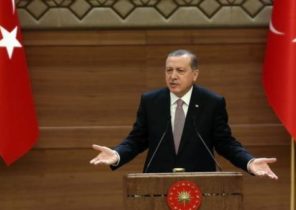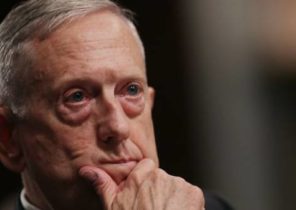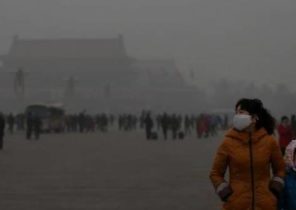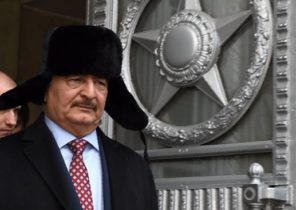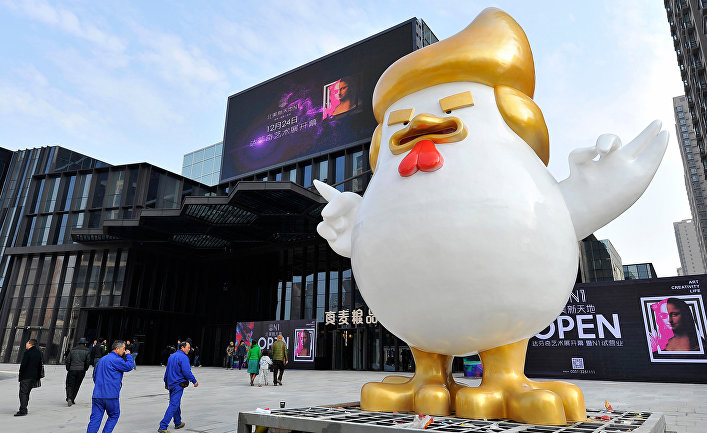
When Donald trump won the US presidential election in November, he had a lot of Chinese fans. But, since then, trump’s popularity plummeted due to his statements — often via Twitter — contentious issues such as Taiwan and the South China sea. And this is not the first case when China’s opinion about the leader of the United States is deteriorating.
A sharp change in the mood of the Chinese people against the Trump recalls what happened with U.S. President Woodrow Wilson, after his re-election, a century ago. At that time, many Chinese intellectuals, including a young Mao Zedong, admired Wilson, a political scientist and former President of Princeton University. Then, in 1919, Wilson supported the Versailles Treaty, according to which control of the former German territories in Shandong were transferred to Japan and never returned to China. Wilson quickly lost in China its appeal.
The mood swings are similar — but the reasons are totally different. A hundred years ago China was set up to support Wilson, and then hated him because of his own weakness. Today, this Chinese force, which controls the opinion of the President of the United States.
When in 1916, Wilson was elected to his second term, China was in a terrible state. Despite the fact that created in 1912, Republic was supposedly a single entity, in fact she was highly fragmented. Military leaders controlled different regions, while foreign forces by bribes and intimidation, he seized large areas of Chinese territory. For Chinese intellectuals, Wilson suggested book contrast bandit warlords.
But the appeal of Wilson in China has gone beyond imagination. In 1918, Wilson’s popularity soared — and not just in China — after an appeal to Congress calling for national “self-determination”. Ignoring the support for Wilson of Jim crow laws in the United States and controlled the invasion of Haiti, intellectuals in countries devastated by imperialism from Egypt to Korea, took his statement to heart, and began to consider him as the Savior and defender of the oppressed.
In particular, Chinese patriots hoped that under the leadership of Wilson, the US could expand its presence in Asia, which would protect China from predators of the Japanese Empire. For them, the support of Wilson, the Treaty of Versailles was a deep betrayal.
China 2016 unimaginably different from China in 1916. He jumped even developed countries in the global economic hierarchy. He United a strong and focused leadership. And it’s huge, including nearly all the territory that was part of the Qing Empire at its peak. A rare exception is Taiwan, but the diplomatic fiction of “United China” supports the fantasy that someday, somehow, the democratic island and the authoritarian mainland will be reintegrated.
In other words, China no longer needs the protection of the United States. Instead, he wants the President of the United States, which is occupied mainly with internal problems, and not much concerned with the containment of China, Barack Obama. Thus, China could deal with the reshuffling of power relations in Asia for their own benefit without worrying about American interference.
Before the election, trump was already famous for having launched the ridiculous accusations against China are usually related to economic issues such as trade. But his apparent lack of interest in foreign policy was very appealing to Chinese leaders. It seemed much more likely that he will leave China alone, in contrast to his opponent, former U.S. Secretary of state Hillary Clinton. His assumption that he is less committed than its predecessors to support traditional US allies in Asia such as South Korea and Japan, was music to the ears of the Chinese nationalists, as well as his doubts about American commitments to NATO, was music for the President of Russia Vladimir Putin.
Like Wilson, trump also got some fans, simply because of his personality, which is unusual for a politician. Of course, trump was not a bookworm. But a lot of people liked that it seemed to be said (or tweeted) anything he wants, offering “straight talk,” which contrasts sharply with the approach of more experienced politicians, including President XI Jinping, who follows his every word.
The same desire for “authenticity” fueled — although quite different — the popularity of another American official, Gary Locke (Gary Locke), who became U.S. Ambassador to China in 2011. Photo of Locke carrying his own backpack and buying coffee at Starbucks is a modest action that would have to follow a subordinate high-ranking Chinese officials — has caused a flurry of Internet Postings glorifying him as a virtuous public servant. How different must be America, argued his fans from China, where corrupt officials and their spoiled offspring are enjoying a luxurious lifestyle, reminiscent of the Imperial family dynastic times.
It is difficult to imagine that such a special us-China contrast has value today, while the pictures of the screaming trump’s penthouse in Manhattan and a lush party the Mar-a-Lago continue to appear. And, despite the fact that the communication style of the trump remains bright, especially compared to the si, it becomes much less attractive when someone is the object of his sharp comments on sensitive issues. Just as weak China could not rely on the protection of Wilson, a strong China will not be able to count on the fact that trump will go with his way — at least not without having to push someone off the road.


